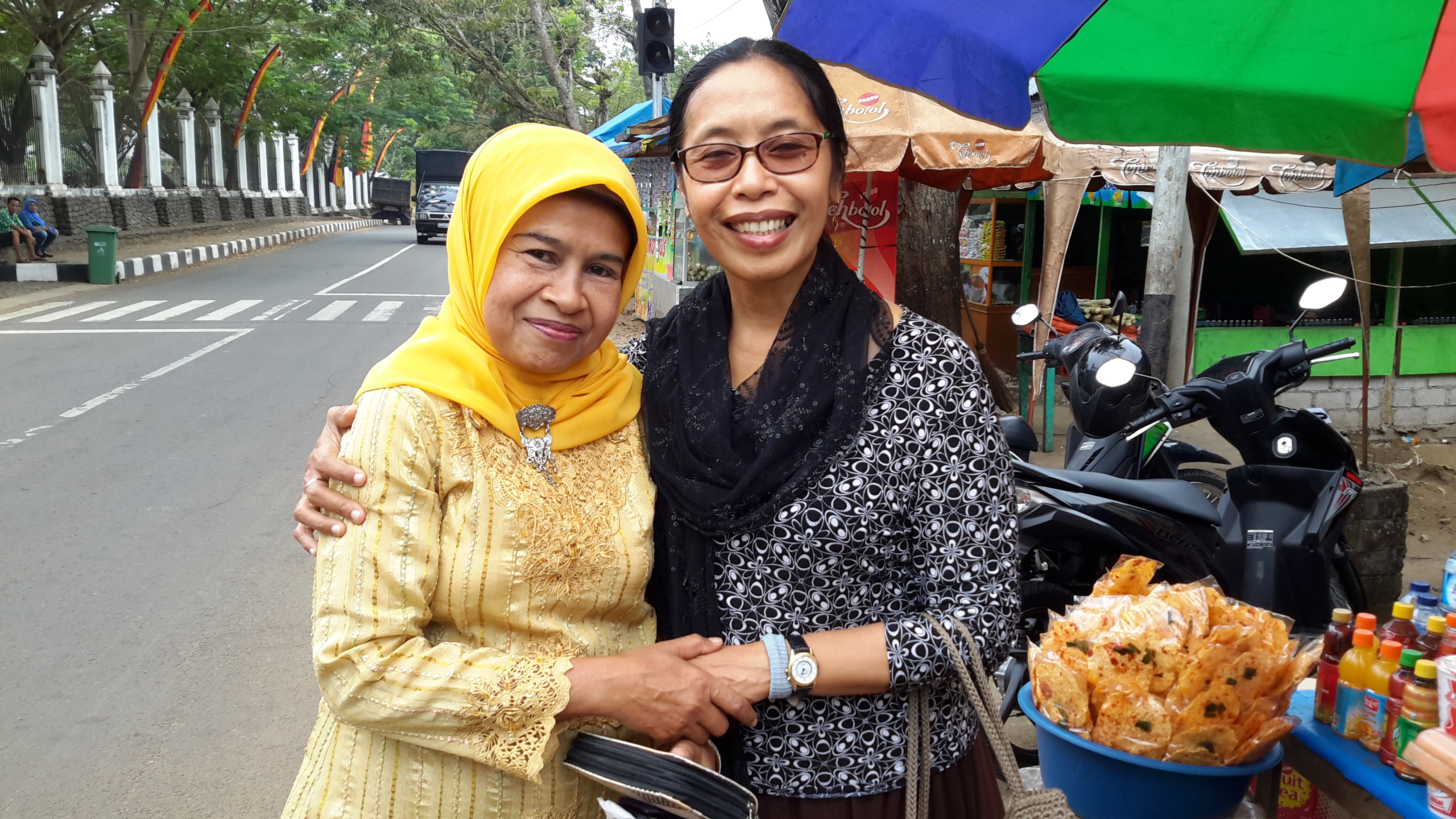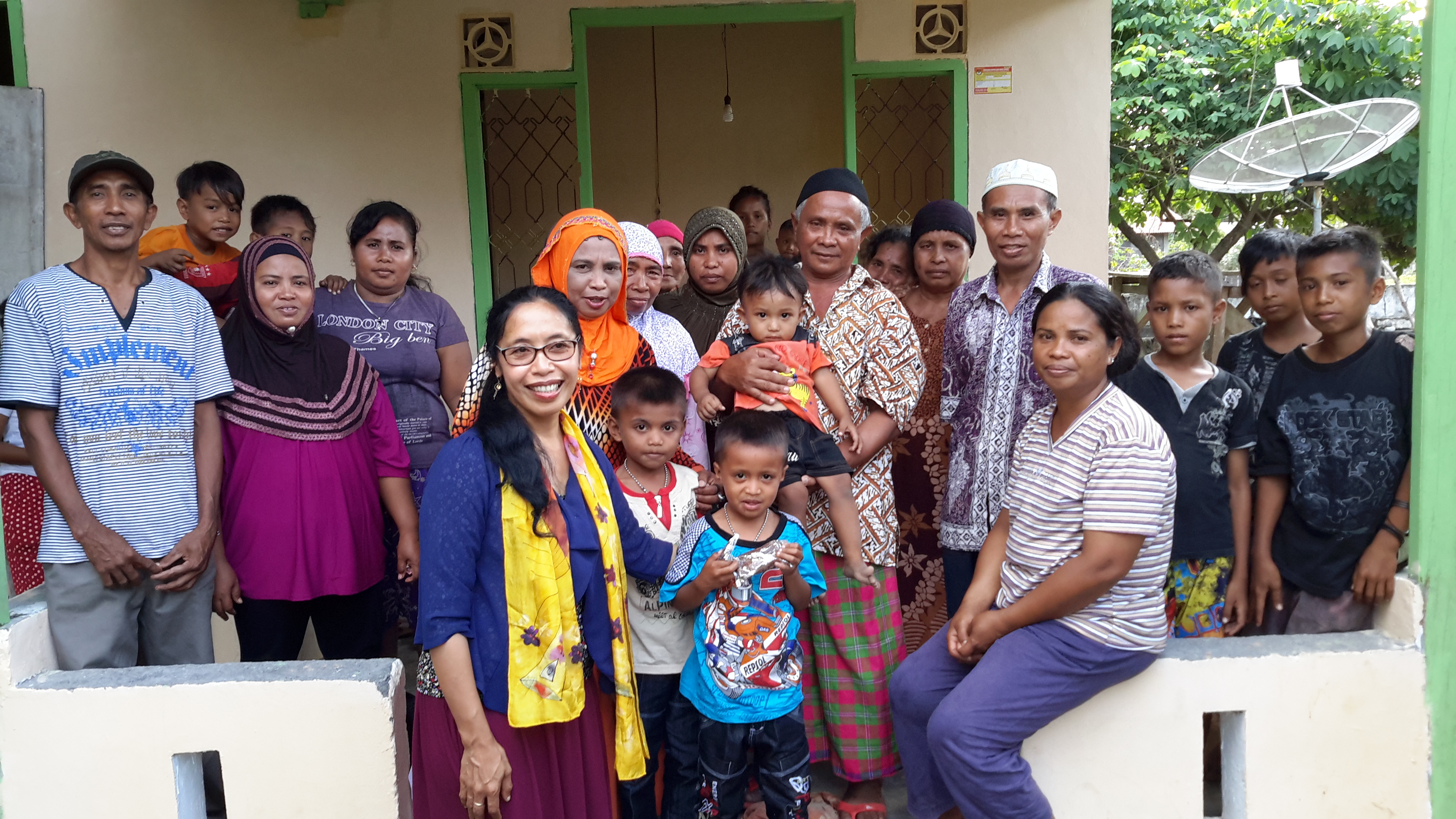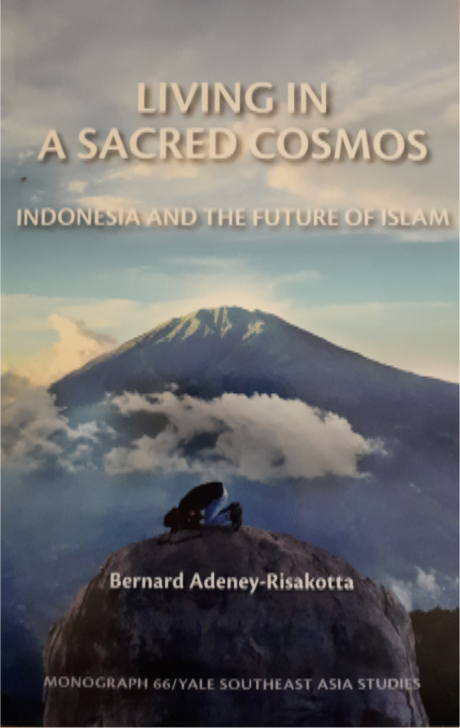A Letter from Bernie and Farsijana Adeney-Risakotta, serving in Indonesia
November 2018
Write to Bernie Adeney-Risakotta (or baryogya@gmail.com) to Farsijana Adeney-Risakotta
Individuals: Give to E200303 for Bernie and Farsijana Adeney-Risakotta’s sending and support
Congregations: Give to D506007 for Bernie and Farsijana Adeney-Risakotta’s sending and support
Churches are asked to send donations through your congregation’s normal receiving site (this is usually your presbytery)
Subscribe to our co-worker letters
Dear family, friends and colleagues,
When I was a little boy, my family took me on a trip to visit my uncle and aunt in Africa. They were both doctors, medical missionaries in Rwanda. We visited a game preserve where we watched lions, elephants and other wild animals from the precarious safety of our jeep. One night, my parents told me that the house we were sleeping in was right on the equator. I asked, “What is the equator?” My dad said it was an imaginary line running around the world. But what I heard him say was that it was “a lion running around the world!” That night, I couldn’t sleep. My eyes remained wide open as I imagined the lion running around our house all night. I didn’t think it was Aslan, but more likely the devil, waiting to devour me.
Today, there really is a lion running around the world waiting to devour us. You may call this lion the devil. But another name is Fear. Fear, prejudice and hatred leap from country to country, from continent to continent, demonizing those who are different, attacking those perceived as a threat, turning neighbors into enemies, sisters and brothers into demons. In Indonesia, after the fall of Soeharto, from 1998-2002, Farsijana and I saw peaceful neighbors turned into killers when fear seized them and they thought that all they held most dear was threatened with destruction. Later they said Satan had gripped them. We’ve also seen the demons tamed, the fears dissolved, as Muslims and Christians in Indonesia rediscovered not only their common humanity, but also their deep relationship as sisters and brothers, joint children of God.
Farsijana and I are now traveling around the USA, speaking at churches and universities, sharing what we have learned from many years of service as PC(USA) mission co-workers in Indonesia. I used to feel like our “Interpretation Assignment” was a necessary evil, a contractual responsibility to raise awareness and garner support for our real work in Indonesia. Our real work was to help the church and society of Indonesia. But now I think our real work is not only in Indonesia, but also in the United States. In fact, perhaps the USA needs a connection with Indonesia, more than the reverse. I went to help Indonesians, but it took me many years to discover how much we need Indonesia.
Why does the United States need Indonesia? For some business people, the first things that come to mind are abundant natural resources, an increasingly educated labor force, a huge expanding market and a rapidly growing tourist industry. After all, Indonesia is the fourth largest nation in the world, with 17,000 tropical islands and a population of 260 million people with a stable democracy. But these are not the primary strengths of Indonesia. The true wealth of Indonesia lies in the rich diversity of its ancient civilizations, religions, cultures and people. Indonesia includes the largest Muslim population in the world but also a long history of interreligious tolerance. Could Indonesians help Americans tame their lions of fear and hatred?
Islam is experiencing a renaissance in Indonesia, about which most of the world is ignorant. The few who see this flowering of Islamic art, ideas, literature, architecture, institutions and culture often view it through the lens of fear or dogmatic prejudice. The imagined threat of Islam distorts our vision so that we cannot see the hope that Muslims may be a blessing to the world. Today there are more Muslims in the world than the combined populations of China and the United States. Tomorrow almost a third of the world will be Muslim. Should this be a source of fear or of hope?
What is the future of Muslim relations with the West? Is Islam the enemy of Christianity and the West? Is Islam more dangerous than secularism, atheism, racism, ignorance, fascism or rampant capitalism? Western fears appear to be substantiated by suicide bombings and waves of refugees. But anyone who has lived in a Muslim society knows that most Muslims do not approve of terrorism. Many are honest, friendly, generous and kind to their non-Muslim neighbors. In Indonesia, the growth of conservative Islamic piety is accompanied by the healthy growth of a flourishing Church. The future of Muslim-Christian relations in the world may be determined by how well we resist together the lions that are running around the world.
Western fears of Islam are equaled by Muslim fears of the West. Indonesian Muslims are proud to live in the largest Muslim country in the world and alarmed by the anti-Islamic rhetoric coming out of Europe and the United States. The rise of populism and fear of the “Other” are not confined to the West. Talk of banning Muslims from the United States or driving them out of Europe does not stem the flow of immigrants but caters to the interests of the small minority of Muslim jihadists who imagine a world that is polarized between Islam and the West. Less than two weeks after the election of a US President perceived as anti-Islam, 700,000 Muslims took to the streets of Jakarta to protest against a popular Chinese Christian governor. They wanted to assert their Muslim identity and feared that non-indigenous Christians were taking over their country.
When I was a boy visiting Africa, my dad gave me a carved wooden rhinoceros because he said I was like a rhino, always charging into trouble. I soon broke off the wooden horn by charging the rhino into immovable objects. Many years later, I visited my uncle when he was in his 90’s. He said, “When I went to Africa, I was so stupid. I went because I thought the Africans needed me. I didn’t know that it was I who needed them.” Perhaps I was like that rhino, charging into Indonesia because I thought the Indonesians needed me, whereas it was I who needed them.
I am now coming to the end of my service with the PC(USA), officially retiring at the end of December 2018. Farsijana will continue as a PC(USA) mission co-worker, creatively serving the Church and society of Indonesia through her work in the university, with women and with villagers. I will continue to serve as her chief partner. We are a team. Thank you for all your support for our work. Our ministry would be impossible without the faithful prayers and generous support of the (PC)USA and of all the churches and individuals who share in our ministry. Please consider contributing to our work through the PC(USA).
If you are interested in learning more about Indonesia and/or the future of Islam, please read my new book, Living in a Sacred Cosmos: Indonesia and the Future of Islam (Yale, August 2018). It is available from Amazon or Yale University.
Warm regards,
Bernie and Farsijana Adeney-Risakotta
Like a roaring lion your adversary the devil prowls around, looking for someone to devour.
1 Peter 5:8
Please read this important message from José Luis Casal, Director, Presbyterian World Mission
Dear partners in God’s mission,
We near the close of 2018 inspired by the hope of Christ. God is transforming the world, and you are helping to make it happen.
Thank you very much for your support of our mission co-workers. The prayers and financial gifts of people like you enable them to work alongside global partners to address poverty, hopelessness, violence and other pressing problems in the name of Jesus Christ.
Every day, Presbyterian Church (U.S.A.) mission co-workers are blessed to be able to walk alongside their brothers and sisters across the globe. Listening to each other in faith and in friendship, they learn from each other how to work towards a world in which everyone flourishes. Acting upon what they discover together, PC(USA) mission co-workers and our global partners strengthen the body of Christ.
Because you are an integral part of God’s mission, I invite you to become more deeply committed to Presbyterian World Mission. First, would you make a year-end gift for the sending and support of our mission co-workers? The needs in the world are great, and World Mission is poised to answer God’s call to serve others.
I also invite you to ask your session to add our mission co-workers to your congregation’s prayer list and mission budget for 2019 and beyond. Your multi-year commitment will make a great difference in our involvement with our partners. The majority of our mission co-workers’ funding comes from the special gifts of individuals and congregations like yours, for God’s mission is a responsibility of the whole church, not a particular area of the church. Now more than ever, we need your financial support!
In faith, our mission co-workers accept a call to mission service. In faith, World Mission, representing the whole church and you, sends them to work with our global partners. In faith, will you also commit to support this work with your prayers and financial gifts? With hope and faith, I await your positive response!
At God’s service and at your service!
José Luis Casal
Director
P.S. Your gift will help meet critical needs of our global partners. Thank you!
![]() You may freely reuse and distribute this article in its entirety for non-commercial purposes in any medium. Please include author attribution, photography credits, and a link to the original article. This work is licensed under a Creative Commons Attribution-NonCommercial-NoDeratives 4.0 International License.
You may freely reuse and distribute this article in its entirety for non-commercial purposes in any medium. Please include author attribution, photography credits, and a link to the original article. This work is licensed under a Creative Commons Attribution-NonCommercial-NoDeratives 4.0 International License.


